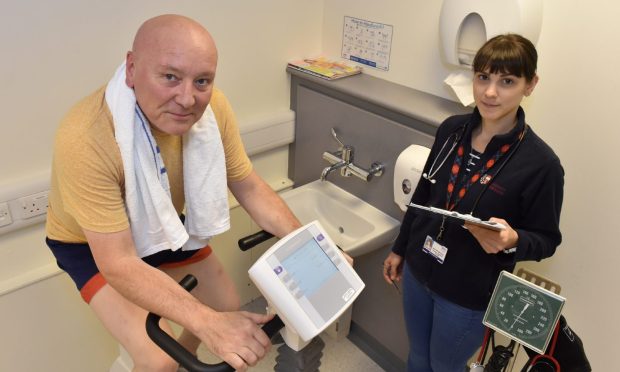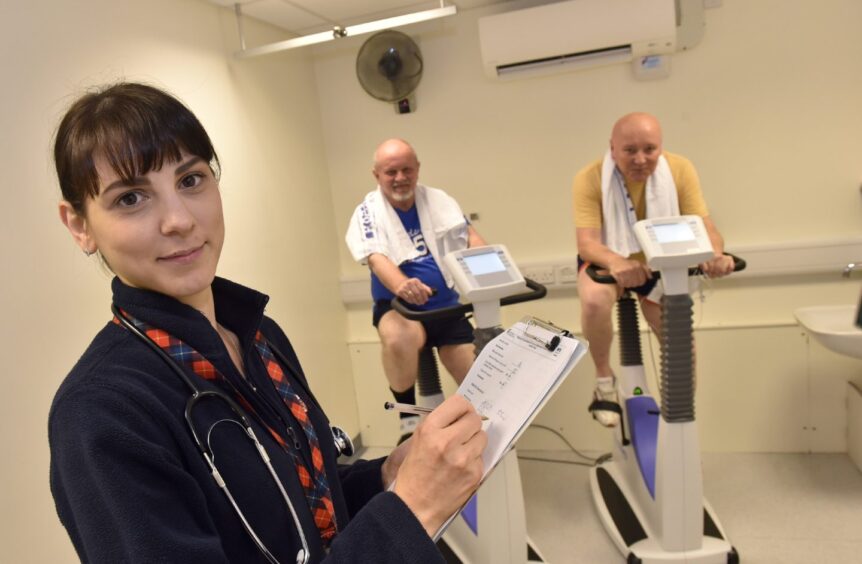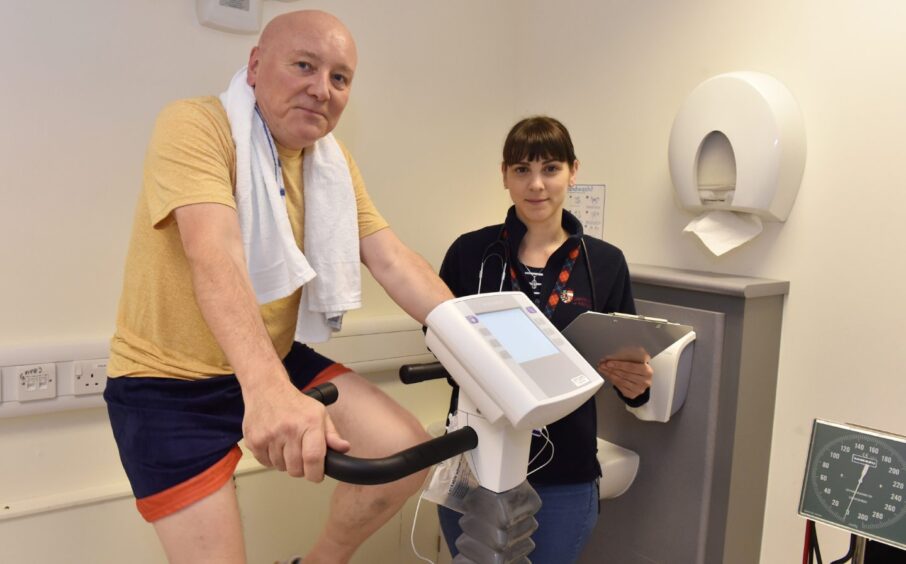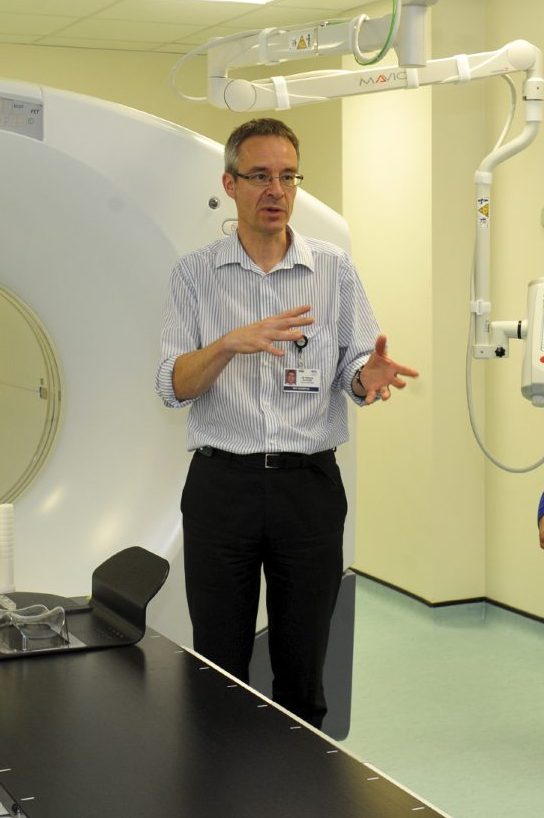It sounds like a pitch for a new Channel 4 reality show: A group of middle-aged couch potatoes swap exercise regimes with some fitness fanatics the same age.
But this isn’t television — it was the set-up for an Aberdeen University research project into the effects of exercise on the body.
Even so, the study — published in May — has been a prime-time hit in the fitness world, potentially changing the way we look at exercise and obesity-related illnesses such as type 2 diabetes.
In fact, you could say it has bigger shocks than a whole season of The Kardashians, and more surprises than a Traitors finale.
Not least to the participants.
“It was bloody hard,” says Peter Dalgarno, one of 44 mostly sedentary, mid-life men with early-stage type 2 diabetes persuaded to take part. “That was my lasting memory.”
Read on to find out how things changed for the couch potatoes pushed into a merciless exercise regime, and what it was like for the fitness fanatics having to give up their beloved exercise….
From couch potato to training like an elite athlete
Peter definitely got the sharp end of the stick when he took part in the study, all the way back in 2017.
As part of the ‘unfit’ cohort, he and the other diabetics endured a shock to their systems by undergoing eight weeks of intense physical activity under lab conditions.
Five days a week, they would go through a punishing workout on a static bike, with researchers prodding them on all the way.
In effect, they were mimicking the athletic regime of the other side of the study — 39 north-east men who, though they were about the same age as the unfit cohort, spent their free-time running marathons, triathlons and other non-couch-related activities.
For Peter, the jump from doing nothing to training like he was in the Royal Marines took some getting used to.
Aged 63 in 2017, the Aberdonian from Woodside had been a keen footballer and runner.
But he had let that slide, and a few years earlier was diagnosed with type-2 diabetes.
Peter loses weight and adapts to the punishing regime
Getting back in shape, then, took some getting used to.
He vividly remembers the researchers pushing him to his limits.
The study required him to cycle for an hour, but the researchers would keep upping the stationary bike’s torque, which made it more difficult to pedal.
“You couldn’t stop,” he says, laughing at the memory. “You had to keep going.”
But Peter soon noticed his body adapting. To his own surprise, in the eight weeks the study lasted, he lost somewhere between 3-4 kilos.
“I know from playing football, that that can happen when you train intensely,” he says. “But to do it over such a short period of time… the weight was just dropping off.”
It was the study’s first surprise: The unfit men lost an average of 2.6kg — less than Peter but a generous chunk given the time frame.
“At the end of it I did feel a heck of a lot fitter than I was previously,” says Peter, now 69.
What happened to the super-fit group?
Meanwhile, over on the other side of the study, the athletes were discovering their own challenges.
These were men for whom exercise was a way of life.
The research parameters required them to be endurance athletes — runners, cyclists, triathletes — that did more than nine hours of exercise a week.
Going from that to zero made some of them almost as uncomfortable as Peter on his stationary bike.
“I felt guilty not doing anything,” recalls 67-year-old Ian Thom, a decommission engineer originally from Aboyne. “I felt guilty for my body.”
Ian had invested a lot of time and effort getting his body up to peak performance.
He admits being a slow starter but when he hit his 60s he started a journey to becoming an extremely fit runner, losing about three stone in the process.
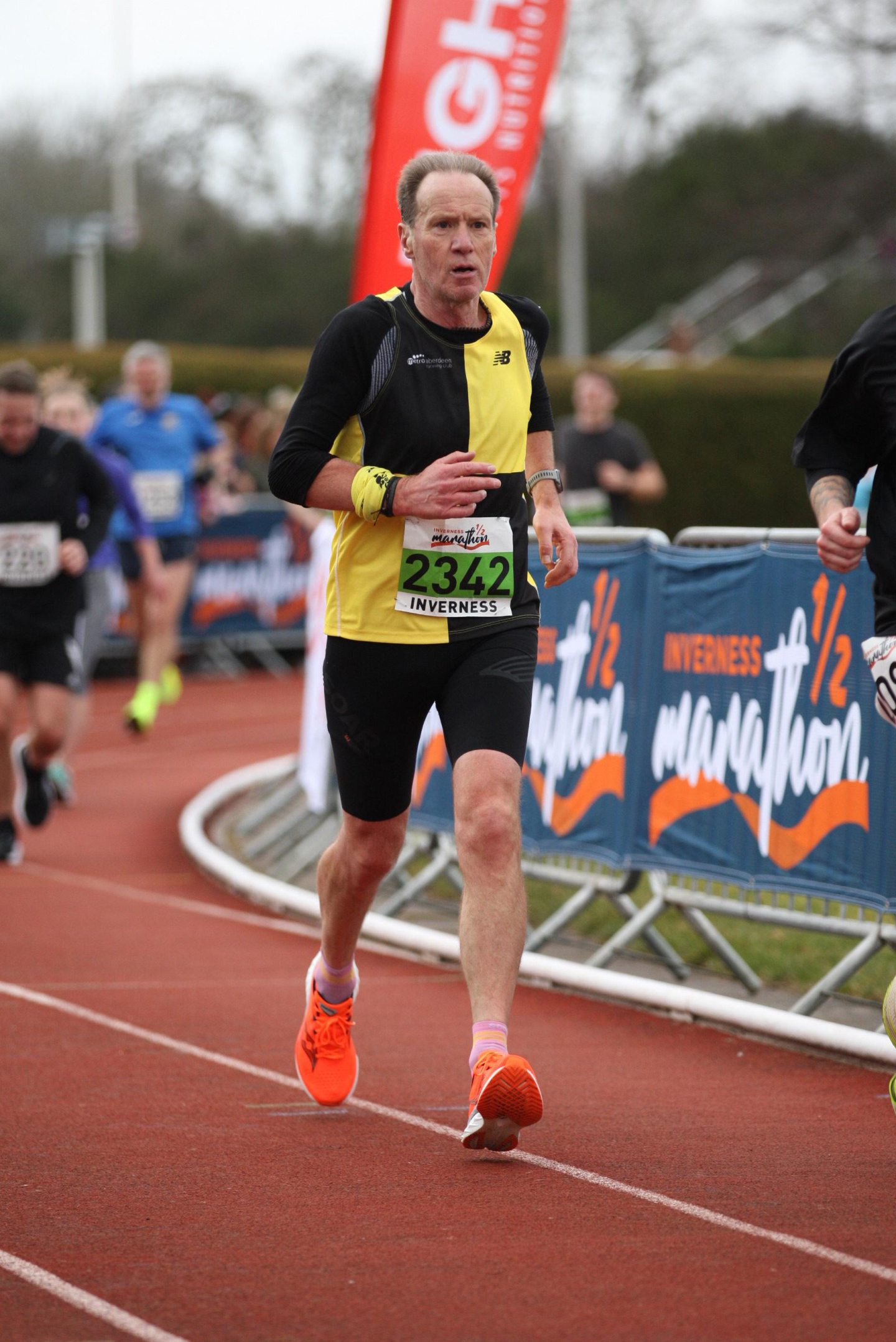
So when the study required him to do absolutely no exercise for four weeks, it was hard going. He put some weight back on, and he found himself counting down the days to when he could start exercising again.
“I’d got fit, and then these people were trying to make me unfit,” he says. “I remember thinking, I don’t like this, I just need to get back.”
It was the same for Fergus McKiddie, a consultant clinical scientist for NHS Grampian, who before doing the study was running at least six miles a day.
Now 57, Fergus says he packed on about four pounds in his four weeks of inactivity and champed at the bit to get back to running.
“If you asked my wife, she would have said I was a bit irritable,” he says, with understatement.
More surprises as researchers dig into the ‘athletes paradox’
But though it frustrated the athletes, the deconditioning led to further surprises for researchers.
The newly-sedentary athletes put on an average of 1.2kg. Meanwhile, the ability of their muscles to use up saturated fat — a warning sign for diabetes — dramatically declined.
Indeed, this saturated fat usage was at the core of the study, which was trying to solve something known as the “athlete’s paradox”.
Both obese people with diabetes and trained athletes have higher levels of fat in their muscles.
The paradox is, that for an unknown reason, athletes are able to use the fat in their muscles as fuel, while in obese people, the fat leads to insulin resistance, a key component of type-2 diabetes.
What the Aberdeen University study showed was that the eight weeks of exercise improved the way the unfit athletes stored the fat. In fact, they reversed many of their type-2 diabetes symptoms such as blood pressure and cholesterol levels.
The conclusion? Anyone can improve their metabolic conditioning with a relatively short period of activity. All you have to do is get on your bike.
What happened when the study finished?
Six years on his lifestyle swap, Peter is proud to have played a role in a such a groundbreaking piece of research.
He even managed to keep up his grueling exercise regime after completing the study though he eventually reverted back to his previous inactivity.
Without the researchers’ help, he says, “it was much easier to drift”.
“If I had the space and the facilities to keep that level going, then, who knows?,” he laughs, “I might have been in the Tour de France.”
Ian returned to running and is fitter than he’s ever been.
Last month, he ran a 48-minute 10k, a very respectable time for someone who will turn 68 this year.
“I’m actually feeling like I can still get even fitter,” he says. “I’m probably more driven to fitness.”
As for Fergus, the NHS scientist, he damaged his knee recently, which put a stop to his runs to work, though he still keeps fit in other ways.
And no TV company has yet to knock on his door with an offer to turn his lifestyle swap into the next ratings winner.
But if they did, would he consider it? Perhaps including an all-expenses paid trip to an exotic locale?
“You’d have to speak to my wife,” he laughs. “She’d probably be glad to see the back of me for a few weeks.”
